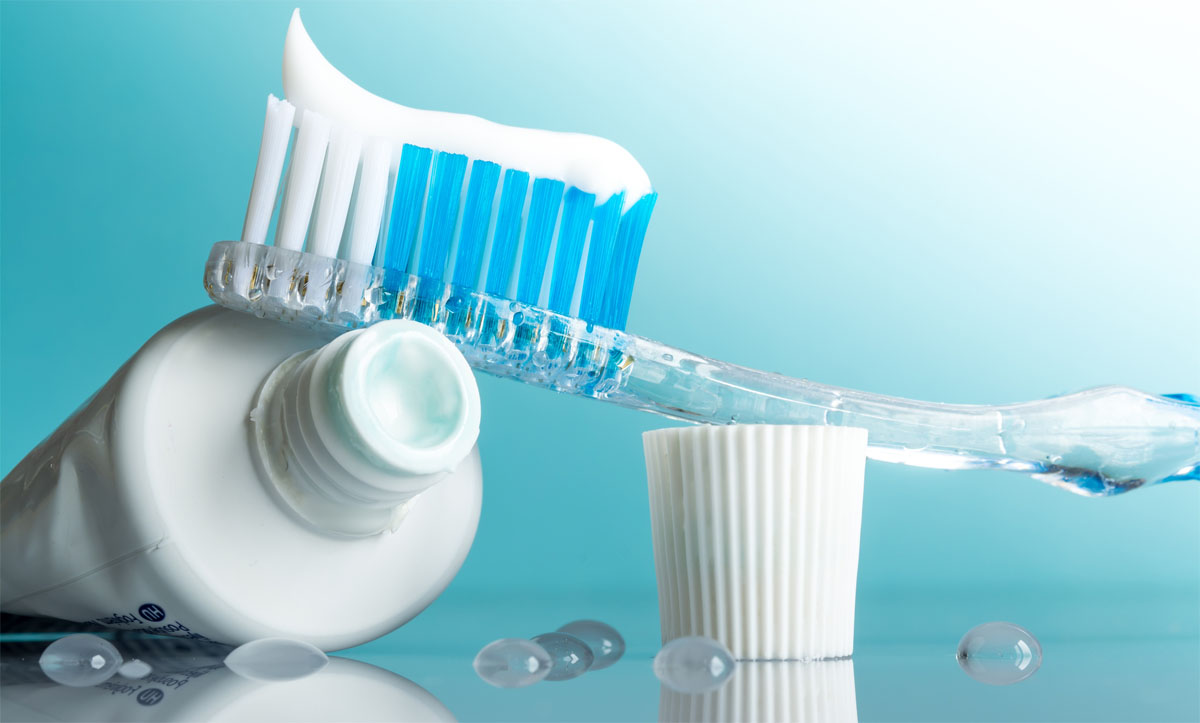Health
How mothers induce obesity in their babies with ‘organic weight gain foods’

How mothers induce obesity in their babies with ‘organic weight gain foods’
Ever imagined growing up to be obese and struggling with your weight because your mother likes chubby babies? Mrs Adetoyin, a 35-year-old mother of twins, was all smiles as she watched her two chubby babies waddling around. She believes that many mothers want chubby babies to make the point that their babies are good-looking and even called the popular nick-name “orobo” as an indication that they are well fed, hence the decision to artificially induce their babies’ foods to increase their sizes.
Adetoyin said: “This is peculiar to our society where we celebrate chubby babies! As a matter of fact many mothers do not believe a baby can be overweight or obese.
“They actually say of such babies in local dialect: “Omo yen lomi lara, pelu eke re” loosely translated as “the baby is well-endowed with chubby cheeks”.
Overweight and obesity are defined as abnormal or excessive fat accumulation that presents a risk to health. Just like adults, babies come in various sizes and shapes. According to health practitioners, babies should ideally weigh about 2,500g or more at birth. Birth weight is a vital indicator of foetal and neonatal health.
For many babies, this is natural baby fat that will begin to shed as he or she becomes more mobile. But there is growing concern about inducing obesity among babies, which could be a precursor for being overweight or obese later in life. Every baby grows at their own rate. Keep in mind that a baby may not gain weight or grow every week.
The factors that are known to influence a baby’s weight at birth include duration of pregnancy and maternal characteristics like age, parity (the number of times a woman has given birth) and illness, as well as adverse environmental exposures.
READ ALSO:
- CBN building economy for everyone to thrive – Cardoso begs for patience
- 2027 Lagos gov race: Opposition heightens against Seyi Tinubu, Obasa
- Abuja court remands 109 foreigners for cybercrime
As a first-time mother, Mrs. Nkem relieved her experience with breastfeeding her baby, but for her, the breastfeeding process was uncomfortable. Worried that her baby might not be getting enough to eat, Mrs. Nkem decided to induce the baby’s diet with Cyproheptadine hydrochloride, not knowing it could be unhealthy for her baby’s health and nutrition.
Some local mothers use cyproheptadine known in local parlance as maa wu (get swollen) to ensure their babies are fat. The drug is not meant for that purpose yet used by many mothers because it has an “appetite-stimulating” side-effect.
Cyproheptadine hydrochloride, a first-generation antihistamine, has shown weight gain in patients as it has appetite stimulation properties. Medically, a user is required to consult a doctor and get a prescription if there’s a need to increase one’s appetite. But practitioners have advised against consuming cyproheptadine for this purpose without a prescription.
Today, the quest by many mothers to get what they describe as the near-perfect weight gain for their babies is fueling a fast-growing organic weight gain industry with medical practitioners warning that this could lead to a surge in cases of obesity in no distant future.
Obesity has emerged as one of the most serious public health concerns worldwide. Recent estimates suggest that more than 500 million adults are obese worldwide, and nearly four million individuals die annually due to high body mass index (BMI).
Excess BMI is a major risk factor for cardiovascular disease (mainly heart disease and stroke), diabetes, musculoskeletal disorders (especially osteoarthritis – a highly disabling degenerative disease of the joints), and some cancers (including endometrial, breast, ovarian, prostate, liver, gallbladder, kidney, and colon). The risk for these non-communicable diseases increases with increase in BMI.
In the 2021 Global Nutrition report, data from Nigeria shows how much progress the country has made towards achieving the global nutrition targets. Of the 13 targets, Nigeria has made ‘some progress’ in achieving four targets while the country is reported to be ‘off-course’ on seven targets.
It is estimated that 15.7% of adult women (aged 18 years and above) and 5.9% of adult men are obese. However, the prevalence of obesity in Nigeria is lower than the regional average of 20.7% for women and 9.2% for men.
Enter organic weight gain for babies
Globally, majority of overweight children are from high income countries. But some low income countries are starting to have problems with overweight. Many obese children become obese adults especially if one or both parents are obese.
READ ALSO:
- Farooq Kperogi: Petrol is cheaper in Atlanta than in Nigeria
- Customs boss warns car buyers: Nigeria now preferred destination for stolen vehicles
- Syrian rebels take control of half of Aleppo, observers say
Recently, the so-called “organic” weight-gain pap for babies sparked outrage and deep concern among Nigerians, urging the National Agency for Food and Drug Administration and Control (NAFDAC) to probe the food product. The product, which promises miraculous weight gain for infants, has been subjected to strong scrutiny by medical practitioners who have found them harmful to babies’ nutrition and growth.
The social media blogosphere is rife with different e-vendors springing up and offering all kinds of services including ‘organic’ skin lightening options for babies, weight gain for babies and many others
To many of these organic weight gain makers, it does not matter the ingredients of the food or pap, they already have an army of prospective customers who are easily swayed by pictures and visuals of before and after moments of alleged patrons of their products.
But investigations revealed that while some of these products give immediate solution to the weight problems their clients may have, they sometimes do more harm than good in the long run.
These sellers post babies weight transformation on their social media handles including Instagram and TikTok, prompting their fans to enquire about the products they applied and thus pushing many of such fans into the hands of these online organic weight gain makers. The experience has left many of them with regrets.
The term “organic” refers to how certain foods are produced. Recent epidemiological studies have explored the association between organic food consumption and the risk of obesity. Nutritionally, organic induced meals significantly impact on one’s growth and health.
Pap, also widely known as akamu, is a traditional West African food made from fermented grains. It is a staple in many cultures, valued for its versatility and nutritional benefits. It is similar to porridge and can be made from various grains like corn, millet, or sorghum.
Pap is particularly beneficial for nursing mothers and babies. It is believed to aid in breast milk production and provides a digestible food source for infants.
While it is beneficial, mothers are usually advised to always consult with their pediatricians before introducing new foods to their baby’s diet, especially when adding any other supplements, to which some children may be allergic. The primary concern is the overall nutritional balance of a baby’s diet.
How the product which is marketed as an “organic” solution to help babies gain weight bypassed NAFDAC’s certification remains a mystery to many Nigerians who have called for prompt action.
READ ALSO:
- Court strikes out Bobrisky’s fundamental rights suit against EFCC
- Over 2,000 Russian troops killed in last 24hrs – Ukraine’s military
- Police arrest 5 suspected trans-border arms dealers, recover 5 Israeli rifles, others
Just like there are problems and diseases associated with under-nutrition or the typical malnutrition, there are problems and diseases the over-nourished/overweight children also have to deal with as the paediatric endocrinologists have unravelled. These overweight and obese children are prone to hypertension and diabetes even from childhood.
Mrs. Shakirah queried: “Ever wondered why there is an obsession with chubby babies? There is this issue of unnecessary worry by mothers because their babies are “not gaining weight” “looking lean” “skinny” “not chubby” “not fat enough” “always dropping (weight)” “not looking like other children” or “cannot see the food he is eating on him or her”.
“A petite cute baby is automatically under-fed to everyone. Different kinds of advice start coming in. Hence, weight gain pap for babies.”
For and against babies’ weight gain
Obsession with weight gain in babies appears to be gaining more traction. For some, it is more like “a trial will convince you”. Observation by The Nation on one of the vendor’s TikTok page revealed that some mothers in the comment section were drooling for babies’ weight gain, while others gave a sharp contrast.
Childhood overweight and obesity has been associated with serious health problems and risk of premature illness and death later in life. Uncontrolled child overweight and obesity can lead to all the health complications that can be noted in an adult.
Genius Hawalh lamented: “You see these new generation mothers who should have been in such or something? They are cancerous to now and the future. They misplace priorities effortlessly. And to the poison sellers, may VDM reason your matter, individually.”
For Onigbajo Toyin, it is a sad development.
She said: “This is so sad! There are more parents like this out there. Homemade food is meant for healthy growth, not questionable weight gain like this!
“This knocks down the work some of us are doing to promote homemade food for children.”
Chinedu Mpamugo: “Having an extremely big infant is not a ‘flex’ as some think. What you need is a healthy child, not an obese one.
“Infant obesity poses a short and long-term problem, with risk of chronic diseases later in life. It’s worse when you have to give special products for weight gain.”
Amaka Ohiri argued: “They don’t know the future health risks they are exposing their babies to. Why would a “so-called” mother feed a four-month-old with a weight gain pap? What happened to her breakfast milk? If she’s not lactating, what happened to age appropriate breast milk substitutes (baby milk)?”
READ ALSO:
- Army releases investigative journalist Fisayo Soyombo
- Tax reform bills will destroy North – Zulum warns
- Excitement in Nigeria as Okonjo-Iweala gets reappointed WTO DG
Ngene Akpa said: “The drugs they use in fattening pigs is what they put in the pap and some mothers administer it directly to their kids. I always say men should get actively involved to monitor what is happening.”
Mr. Ogochukwu lamented: “This is the most use*less era. Our parents of old used more organic nutritional products to grow us. The Gen z girls of now want it quick, using lots of processed chemical mixtures to feed their kids.”
Mr. Ejikem advised: “Men, please be involved in whatever your wives are doing to your kids. Only mentally deranged couples will buy weight gain pap for babies.
“Genetically, two slim people shouldn’t be having Orobo. These are the same people that bleach children.”
In response to the concerns raised about the product marketed as Pems Organic Weight Gain Pap, the seller issued a statement on her TikTok account, @purely_organicc.
In the statement, she maintained that her product is made from entirely natural ingredients, which she said are properly sorted, washed and dehydrated before production.
The statement reads in part: “I do not use any form of artificial content in my product; they are natural ingredients.
“Here are the ingredients I use: oats, sorghum, millet, tiger nut, cashew nut, soya beans, dried plantains, millet, date, crayfish and groundnut, all of which are properly sorted, washed, and dehydrated before production.”
She further defended the safety of her product, claiming that it had been used without any adverse reactions by her own children and numerous customers.
“This is a product I’ve used for my son and my niece and none of which they have ever reacted to, neither have any of my customers.
“I can share with you some contacts of my customers for confirmation,” she wrote.
“This is a product I send within and outside Nigeria, and no child has ever reacted to it!” she insisted.
The seller clarified that her business is registered with the Corporate Affairs Commission and is in the process of obtaining NAFDAC approval.
She wrote: “And for the part of NAFDAC, it is a process I’ve been working on for the past couple of weeks, and I’m trying to get all of the necessary documentation.
“Also, my business is registered under CAC, and I can send you some samples of my product for testing and can be taken to any lab for further inspection.”
Setting babies up for future health challenges?
The infancy stage of babies are crucial to their growth. Infancy is a time when the growth, coordination, and mental development occur. Newborns build upon their rooting, sucking and grasping reflexes. Infants begin to tug and pull on their hands, clench them into fists, and bring them to their mouths, all while learning to repeat their body movements.
Experts argue that responsive parenting behavior is very useful and important in averting detrimental feeding practices and child’s obesity. Poor eating and feeding practices start from the earliest days of a child’s life.
They underlined that some mothers may lack knowledge about balanced diets and healthy eating habits, leading to unintentional promotion of unhealthy weight gain.
As children begin transitioning to soft or solid foods around the six-month mark, too many are introduced to the wrong kind of diet.
A certified nutritionist, Odukoya Fiyinfoluwa, posited: “Overfeeding your baby or giving them calorie-dense but nutrient-poor foods to achieve that “chubby look” can set them up for future health challenges: obesity, diabetes, and even hypertension.
Health advocate and paediatrician, Ayobola Adebowale, noted that a baby’s overweight is a foundation for childhood obesity
He said: “There is a healthy weight pattern for babies — Double birth weight around five months; triple birth weight at first year!
“Your baby, after six months, should be eating good and balanced diet. You don’t necessarily have to give them energy dense foods because you want them to be chubby.
“Chubby doesn’t necessarily mean healthy. Your focus should be raising a healthy child with healthy weight. You say it is baby fat, I say it is a foundation for childhood obesity because you just wouldn’t stop feeding them.”
Doctor Egemba Chinonso, popularly known as Aproko Doctor, urged regulatory agencies to take action on these products which are detrimental to the health of babies and infants.
Checks by The Nation revealed that the agency in its extant law noted: “No NAFDAC regulated product shall be manufactured, imported, advertised, sold, distributed or used in Nigeria unless it has been registered in accordance with the provision of Food, Drugs and Related Products Registration, Act Cap F33 LFN 2004.
“A pre-packaged and/or labelled food product shall not be manufactured in Nigeria unless the facility has been inspected and Certificate of Listing is issued to the product by NAFDAC.”
Chinonso said: “Dear @NafdacAgency, I’m guessing this is within your purview. No one knows what is inside that pap. Also, this is setting these babies for damage.”
Three researchers, Drs Oluwafunmilayo Adeniyi, Gabriel Fagbenro and Foluke Olatona, in a 2020 report, noted that the rate of childhood obesity in some developing countries was as high as that of developed countries.
They added that children in low and middle-income countries were exposed to high-fat, high-sugar, high-salt, energy-dense, and micronutrient-poor foods, which were lower in cost but also lower in nutrient quality.
For the medics, these dietary patterns, in conjunction with lower levels of physical activity, result in a sharp increase in obesity in children.
How mothers induce obesity in their babies with ‘organic weight gain foods’
THE NATION
Health
Those spraying perfume in armpit, private parts risk cancer – Shehu Sani

Those spraying perfume in armpit, private parts risk cancer – Shehu Sani
Former senator and human rights activist, Shehu Sani, has issued a cautionary note to the public against spraying perfume directly on sensitive areas of the body such as the armpits and private parts.
In a Facebook post on Sunday, the former lawmaker from Kaduna Central recounted the tragic story of a young man named Salisu, who reportedly developed cancer after regularly applying perfume to those areas.
READ ALSO:
- Bus accident in Lagos claims one life, injures two; driver, conductor fee scene
- Plateau: Father, two sons killed in fresh attack
- Kidnapping scare: Woman faints, others sustain injuries in Kogi
“Don’t spray perfume in your armpit or private parts. If you are in the habit of doing that, learn from this,” Sani wrote. “A young man called Salisu used to do so, and suddenly it triggered a strange form of cancer in those areas. The spots got rotten and his health deteriorated. He is now dead.”
While noting that he had no scientific explanation for the incident, Sani said he was simply sharing the story as a word of caution.
“Just a piece of advice,” he added.
Those spraying perfume in armpit, private parts risk cancer – Shehu Sani
Health
Nigeria confirms 660 lassa fever cases, 122 die

Nigeria confirms 660 lassa fever cases, 122 die
The Nigeria Centre for Disease Control and Prevention (NCDC) has identified Ondo, Bauchi and Edo states as the epicentres of the Lassa fever outbreak in the country.
Director-General of the NCDC, Dr Jide Idris, during a media briefing, yesterday, in Abuja, said that those states accounted for over 70 per cent of confirmed lassa fever cases reported so far in 2025.
Idris said that the three states contributed 71 per cent of the 660 confirmed Lassa fever cases recorded between January and the end of March 2025, with Ondo accounting for 30 per cent, Bauchi, 25 per cent, and Edo, 16 per cent.
The director general said that the NCDC had intensified a nationwide multi-sectoral response through its activated incident management system at the national level to coordinate the public health emergency across affected states.
READ ALSO:
- 17 kidnapped victims rescued from Niger, 21 rifles seized in Kaduna
- Sanwo-Olu gifts LASU best graduating student N10m
- NRC suspends Warri-Itakpe train after multiple engine failure
He said, “As the cases surge in these epicentre states, our response is focused on early detection, case management, risk communication, and community engagement. The transmission remains active in multiple local councils, with 28 states and 125 councils affected this year.”
Idris also said that 122 deaths had so far been recorded, resulting in a case fatality rate of 18.5 per cent—higher than the 17.5 per cent recorded during the same period in 2024.
He said that to combat the spread, the NCDC had deployed national rapid response teams to hotspot areas, trained healthcare workers on infection prevention and control, and scaled up community sensitisation.
The DG, therefore, stressed the importance of early presentation to health facilities to reduce fatalities.
Idris, who disclosed ongoing collaborations with key partners, including the World Health Organisation (WHO), Médecins Sans Frontières (MSF), and the African Field Epidemiology Network (AFENET), to support surveillance, clinical care, and public awareness, said that the agency was also supporting research efforts to improve outbreak preparedness and response.
Nigeria confirms 660 lassa fever cases, 122 die
Health
Poisonous fluorides in toothpaste: Pharmacists counter televangelist’s claims

Poisonous fluorides in toothpaste: Pharmacists counter televangelist’s claims
Pharmacists have refuted recent claims made by a popular pastor that fluorides in food, toothpaste, and pharmaceutical products are poisonous and carcinogenic.
While acknowledging the pastor’s spiritual influence, the pharmacists provided crucial scientific clarity, asserting that fluoride, when used in approved quantities by regulatory bodies, is safe and beneficial for public health.
The pharmacists, on the platform of the Association of Community Pharmacists of Nigeria, ACPN, made the clarifications, weekend.
Their intervention comes in response to trending videos where the religious leader vehemently condemned the pharmaceutical industry over the inclusion of fluorides in various consumer products.
Scientific facts
In a statement by the National Chairman, Ambrose Ezeh, and Secretary, Omokhafe Ashore, the pharmacists said: “We at ACPN will not attempt to tackle the pastor’s anointing in God’s word.
“But (we) will clarify with some scientific insight and background that the pastor’s exposition on fluorides was not totally in alignment with scientific facts.
“The ‘Use of Fluorides in Pharmaceutical Preparations and Foods’ declared: ‘Fluorides used in approved quantities by the relevant and appropriate food and drug regulatory agencies are safe’.
READ ALSO:
- Police raid criminal camps, recover food items in Anambra
- Oba Owoade crowned Alaafin of Oyo
- A colleague raped me, Actress Lolo 1 alleges
“In strictly public health interest, the ACPN wishes to posit as follows: Fluoride used in approved quantities by the relevant and appropriate Food and Drug regulatory agencies are safe.
“While some researchers have indeed linked Fluoride with some cancers, oftentimes such incidences have been proven to be in instances where excessive amounts beyond the approved limits were used.”
-

 Business2 days ago
Business2 days ago5 facts about trending digital trading platform, CBEX
-

 Insurance1 day ago
Insurance1 day agoLasaco Assurance attains ISO/IEC 27001:2022 certification for information security management
-

 International3 days ago
International3 days agoObama reacts as Trump freezes $2.3b Harvard University funding
-

 metro2 days ago
metro2 days agoBREAKING: Court strikes out defection suit against 27 pro-Wike Rivers lawmakers
-

 metro2 days ago
metro2 days agoNatasha’s allegation against Akpabio has contradictions – Agbakoba
-

 Politics1 day ago
Politics1 day agoNNPP lawmakers seek to rejoin APC after fallout with Kwankwaso
-

 Entertainment2 days ago
Entertainment2 days agoPortable regains freedom after Osupa drops cyberstalking case
-

 metro1 day ago
metro1 day agoNigerians lose N1.3tn as ponzi scheme CBEX collapses



